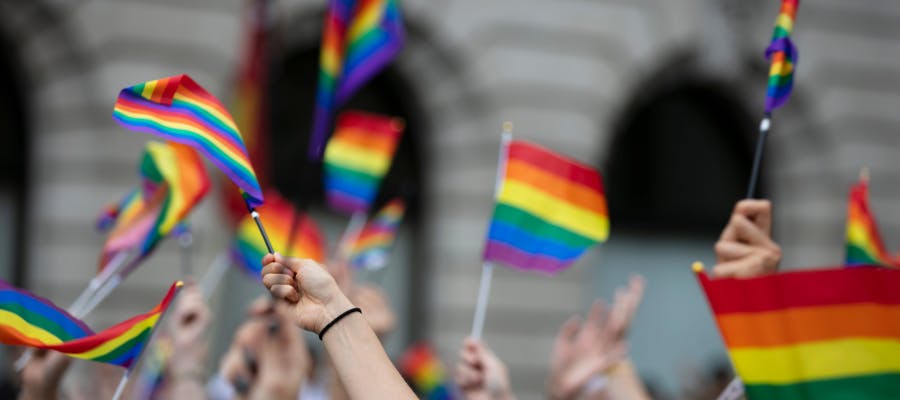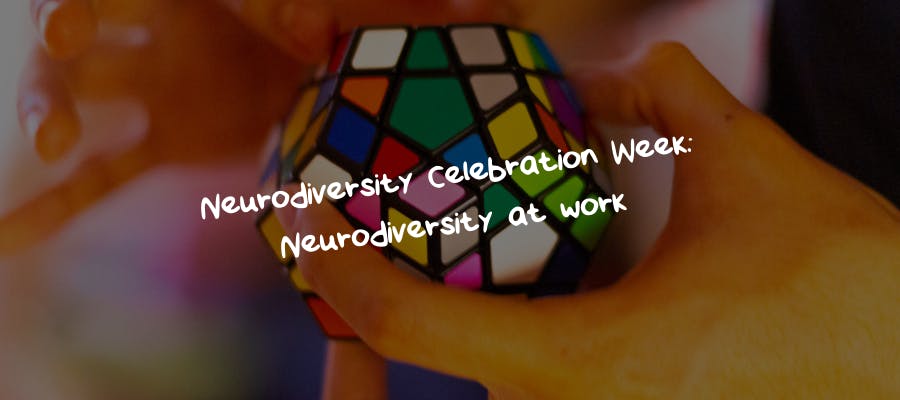First published on Friday, February 24, 2023
Last updated on Friday, February 24, 2023
BrightHR breaks down some of the main challenges your LGBTQ+ staff may face so you can support them this LGBTQ+ History Month and beyond…
Celebrated in schools, universities, and workplaces across the UK, February is LGBTQ+ History Month.
This year is the 20th anniversary of the repeal of Section 28. This law banned the “promotion of homosexuality” in schools, councils, organisations, and communities in the UK.
Not only did this threaten widespread representation for young LGBTQ+ people, but it also took away the opportunity for councils to spend essential money on inclusive educational materials.
This bill was outlawed in 2003 and two years later, LGBTQ+ History Month was born. The organisation Schools OUT UK created the day with the aim to improve education about the LGBTQ+ community to break down barriers, stereotypes, and biases.
In honour of the month and in line with the theme of education and representation, we take a look at the main challenges your LGBTQ+ workforce face on a daily basis and how you can help.
So, what are the challenges?
Your company lacks top-to-bottom representation
This year’s theme is “Behind the Lens” LGBTQ+ people’s contribution to cinema and film. The main message here is the importance of representation for people in the community. This got us thinking about why representation is so important in the workplace.
It’s super valuable for business leaders to be visible allies to make staff feel safe at work. Not only this, but when you’re hiring you need to make sure your process gives everyone an equal opportunity. According to the BBC, gay and lesbian candidates are 5% less likely to be invited to an interview than heterosexual male or female applicants. That’s why it’s key to make sure your processes don’t discriminate, and job adverts are reflective of all members of the community.
If you’re unsure about how to make your recruitment processes fair for everyone and free of bias—discover how to avoid recruitment discrimination.
Your staff are victims of “invisible” barriers to progression and acceptance
You might not be automatically aware of some of the barriers that exist for LGBTQ+ staff in the world of work. According to the UK's largest EAP provider more than a third of LGBTQ+ staff (35%) have hidden their sexuality at work for fear of discrimination.
More shockingly, 1 in 8 people wouldn’t feel confident reporting homophobic or transphobic abuse to their employer.
To spread the message of acceptance and inclusivity, it’s important to create an environment your staff feel safe in. A cost-free way to do this is to create a committee where employees can talk about the issues and suggest change in your organisation. Encourage employees to be ambassadors and educators on the issues—without putting anyone on the spot, of course!
Making sure you have effective HR policies helps to instil a zero-tolerance approach towards bullying and harassment. It also allows and encourages staff to bring their authentic selves to the workplace.
There is no structure to anonymously raise concerns
The importance of creating an open environment where staff can raise issues without fear is fundamental to an inclusive workplace.
A common reason that LGBTQ+ workers won’t report negative comments is that companies don’t have the correct procedure in place, and employees don’t believe their concerns will be taken seriously or action will be taken.
In terms of how diversity in your workplace benefits you, it’s not just your LGBTQ+ workforce that will leave if you fail to make your workplace inclusive. Being witness to unfair treatment will impact your entire team’s morale.
This means, to combat quiet quitting (the phenomenon that staff are getting less and less engaged), and to retain top talent—you need inclusive HR policies in place.
So, how can you help?
As an employer, it’s important you understand that sexuality and gender are sensitive issues for your staff. Not every employee will feel comfortable being their true self at work or revealing it to their line managers.
Having a confidential employee assistance programme, like Bright Wellbeing & Counselling can give your staff the impartial support they need. Not only is an EAP a great way to support your staff’s mental health—but it will also help you to take steps towards a happier, more collaborative work culture.
Following the advice laid out above can help you avoid holding your LGBTQ+ staff back from success, promotion, and achievement. And it can also help you to see positive results for your business, higher retention rates, and more productive staff.






